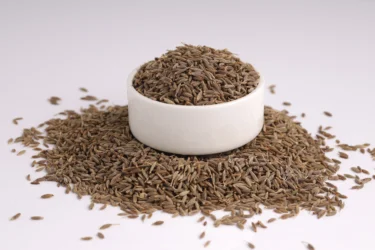Best Home Remedies for Upset Stomach
By Dr. Raghuveer +2 more

Get,

to manage your symptom
Get your,


4 Cr+ families
benefitted

OTP sent to 9988776655



You’ve successfully subscribed to receive
doctor-approved tips on
Whatsapp

Get ready to feel your best.

Hi There,
Download the PharmEasy App now!!


Register to Avail the Offer
Send OTPBy continuing, you agree with our Privacy Policy and Terms and Conditions

Hi There,
Sign up on PharmEasy now!!
Trusted by 4 crore+ families

OTP sent to 9988776655



You have unlocked 25% off on medicines




Code: NU25

Comments


Leave your comment here
By Dr. Raghuveer +2 more
Table of Contents
Indigestion, or an upset stomach, has become increasingly common in recent times. Many individuals experience occasional digestive discomfort, often linked to modern lifestyle changes. A major contributing factor has been the reduction in physical activity, especially following the COVID-19 pandemic, which disrupted daily routines and encouraged more sedentary work habits. These shifts in lifestyle can negatively impact digestion, leading to more frequent episodes of stomach discomfort.
In medical terms, an upset stomach is also called dyspepsia. It is characterised by discomfort or pain in the upper abdomen and is not a disease itself, but rather a collection of symptoms such as bloating, nausea, early satiety, and abdominal fullness. Dyspepsia can occur on its own or may be a symptom of an underlying gastrointestinal condition, such as gastritis, peptic ulcer, or gastroesophageal reflux disease (GERD)1.

Common causes of an upset stomach (dyspepsia):
There are different types of treatments available based on the underlying cause. Lifestyle changes may help ease indigestion and help relieve stomach pain. These include, avoiding spicy food or reducing the use of alcohol. If indigestion persists even after lifestyle modifications are followed, the doctor may prescribe medications.
It is important to observe whether your stomach discomfort is related to factors such as food intake, medications, menstrual cycles (in the case of females), or bowel movements. Take note of whether the symptoms are continuous or occur intermittently. If the pain persists for more than three days, or if it is particularly severe and accompanied by vomiting, it is advisable to consult a qualified medical professional.
Dr Ashish Bajaj , M.B.B.S M.D. in Clinical Pharmacology and Toxicology

Water plays a vital role in maintaining digestive health, especially during episodes of an upset stomach. The body requires adequate hydration to absorb essential nutrients and eliminate toxins effectively. Dehydration, often caused by vomiting or diarrhoea, can worsen stomach discomfort. Additionally, reduced water intake may lead to increased stomach acidity, resulting in burning sensations or irritation3.
Drinking adequate water helps dilute excess stomach acid, providing relief from burning and discomfort. It serves as a simple and effective home remedy for managing mild stomach aches, especially those caused by indigestion or acidity.

Lemon water can be a helpful remedy for mild indigestion and abdominal discomfort. Although lemon is acidic in nature, it produces an alkalising effect in the body after digestion, which may help neutralise excess stomach acid. This makes it a simple and commonly used home remedy for acidity-related stomach discomfort4.

Lemon water mixed with a small pinch of baking soda is a simple home remedy often used for the reduction of indigestion and gas. This mixture can create a mild neutralising reaction in the stomach, producing carbon dioxide and helping relieve bloating temporarily. However, while some individuals may find it soothing, it may not be suitable for those with hyperacidity or sensitive digestion. It should be used occasionally and not as a long-term solution5.

Mint leaves contain menthol, which is known to help soothe the digestive tract and may provide relief from mild indigestion. It can also reduce intestinal muscle spasms and abdominal discomfort. Traditionally, mint has been used in many Asian cultures as a home remedy for digestive issues.
Mint can be consumed in various forms, either raw, as a garnish in meals, or brewed into herbal tea, often combined with ingredients like cardamom for added digestive benefits6.

Ginger has been used since ancient times for managing colds, coughs, nausea, vomiting, and various types of pain. It contains active compounds such as gingerols and shogaols, which may support digestion7 by enhancing gastric motility and reducing abdominal discomfort8. This makes ginger a helpful natural remedy for stomach-related issues7.
Ginger has been used since ancient times for managing colds, coughs, nausea, vomiting, and various types of pain. It contains active compounds such as gingerols and shogaols, which may support digestion by enhancing gastric motility and reducing abdominal discomfort. This makes ginger a helpful natural remedy for stomach-related issues.
Fresh ginger root can be peeled, chopped, and used in food or brewed into teas. It may also be consumed in small amounts as chews, depending on individual tolerance to its strong aroma and taste.

Cinnamon sticks contain antioxidants such as cinnamaldehyde, camphor, linalool, and eugenol, which are known for their digestive and anti-inflammatory properties. It can help ease symptoms of indigestion, including bloating, nausea, and a feeling of abdominal fullness.
For mild digestive discomfort, individuals may add about 1 teaspoon of cinnamon powder or a small stick while cooking meals or steep it in warm water to prepare a soothing herbal tea. However, those with sensitive stomachs or on medication should consult a healthcare provider before regular use9.

Cumin seeds are known for their carminative properties and can help alleviate symptoms of upset stomach such as hyperacidity, bloating, and abdominal discomfort. They may provide relatively quick relief by aiding digestion and reducing gas.
A traditional home remedy involves mixing about one teaspoon of cumin seeds with some dry coconut and two garlic cloves. Consuming this mixture may help reduce stomach discomfort. However, individuals should try this in small amounts first, as the combination can be strong and may not suit everyone10.
Take a tsp of cumin seeds, some dry coconut, and two garlic cloves. Mix them and consume them at once. It will help to reduce the uncomfortable feeling in the stomach instantly.

Banana contains various vitamins, folate, and potassium. It may help to reduce the acids in your stomach and give you a soothing relief from stomach ulcers11. Bananas can also help by adding bulk to loose stools, which can help alleviate diarrhoea12.
While many symptoms of an upset stomach can be managed at home, it is essential to identify the underlying cause and severity. These factors will determine whether home remedies are sufficient or if you should consult a doctor. For mild symptoms, increasing fresh fruits and vegetables in your diet and reducing alcohol intake can support recovery.
Socioeconomic status and environmental hygiene are key factors in the transmission of H. pylori infection worldwide. These include family hygiene practices, household crowding, and cooking habits. Infection acquired in childhood is considered the primary cause of H. pylori-associated gastritis within communities.
Dr. M.G. Kartheeka, MBBS MD(Pediatrics)
Also Read: Dysentery: Causes, Symptoms, Treatment, And Home Remedies
If you are experiencing persistent stomach pain that does not improve despite the use of common home remedies, and the discomfort continues for several days, it is advisable to seek medical attention. This may indicate an underlying condition that requires professional evaluation and care.
Sudden and severe stomach aches can be a sign of serious health issues that may worsen without prompt medical attention. You should see your doctor right away, especially if the pain is localised to one area. Some common causes of stomach-ache include:
Also Read: Best Home Remedies For Lipoma
Stomach discomfort is common and often manageable with lifestyle changes and simple home remedies. However, persistent or severe symptoms should not be ignored. Seeking timely medical advice is essential to rule out any underlying health conditions.
Also Read: Natural Home Remedies for Dengue
An upset stomach, also known as dyspepsia or indigestion, can be caused by various factors. Common causes include overeating, consuming fatty or spicy foods, eating too quickly, bacterial or viral infections, stress, anxiety and certain medications.
Symptoms of an upset stomach may include abdominal discomfort or pain, bloating, gas, nausea, vomiting, heartburn, belching and a feeling of fullness. Diarrhoea or constipation can also accompany an upset stomach.
To prevent an upset stomach after eating, it is essential to eat smaller, more frequent meals, and avoid overeating. Chew food thoroughly and eat at a relaxed pace. Limit intake of spicy, greasy, or acidic foods and avoid consuming large amounts of caffeine or alcohol.
Over-the-counter antacids can provide temporary relief from heartburn or indigestion associated with an upset stomach. However, prolonged or excessive use of antacids may lead to side effects or can mask underlying issues. Consulting a healthcare professional is advisable if symptoms persist.
Yes, stress and anxiety can trigger symptoms of an upset stomach. Stress activates the body’s “fight or flight” response, which can affect digestion and lead to discomfort or indigestion. Practicing relaxation techniques and managing stress can be beneficial.
Also Read: Home Remedies for Dark Underarms
Disclaimer: The information provided here is for educational/awareness purposes only and is not intended to be a substitute for medical treatment by a healthcare professional and should not be relied upon to diagnose or treat any medical condition. The reader should consult a registered medical practitioner to determine the appropriateness of the information and before consuming any medication. PharmEasy does not provide any guarantee or warranty (express or implied) regarding the accuracy, adequacy, completeness, legality, reliability or usefulness of the information; and disclaims any liability arising thereof.
Comments

Leave your comment...

View all comments(1)
You may also like
You are most welcome. Hope you found it useful.